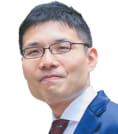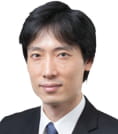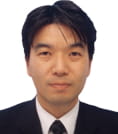- JST Home
- /
- Strategic Basic Research Programs
- /
 PRESTO
PRESTO- /
- project/
- Future Led by IoT/
- [IoT] Year Started : 2019
[IoT] Year Started : 2019
Daichi Amagata
Super-fast Distributed Algorithms for Big IoT Data Analysis
Researcher
Daichi Amagata

Assistant Professor
Graduate School of Information Science and Technology
Osaka University
Outline
Big data analysis techniques are becoming more and more important, but efficient techniques that can be commonly employed for diverse data have not been developed much so far. This work devises super-fast distributed algorithms that can be used for massive and diverse data which are generated by (many) IoT devices. More specifically, this work focuses on metric spaces to deal with many domains and distance functions, and designs efficient distributed and parallel algorithms.
Akira Uchiyama
Development of Sustainable IoT Platform by Wireless Sensing
Researcher
Akira Uchiyama

Associate Professor
Graduate School of Information Science and Technology
Osaka University
Outline
The number of IoT devices is expected to be enormous, causing huge effort to maintain batteries. The goal of this project is to develop a novel technology for context-awareness by wireless sensing which directly captures the change of radio waves due to the movement of humans and/or objects. The specific research objectives are to 1) develop a maintenance-free tag which does not require battery maintenance despite affecting radio waves; 2) design a novel sensing platform which directly translates the movement of humans and objects into the change of radio waves by leveraging the maintenance-free tags. The research outcomes will allow future IoT to recognize contexts in a maintenance-free manner.
Shinya Sugiura
Wireless Network Secruity for IoT
Researcher
Shinya Sugiura

Associate Professor
Institute of Industrial Science
The University of Tokyo
Outline
In this project, a novel wireless security framework is proposed for IoT networks supporting massive wireless devices. More specifically, an information-theoretically secure framework that satisfies the requirements of IoT is developed based on physical-layer security techniques. As a result, the disadvantages of encryption-based wireless security are overcome, and this contributes to establishing highly secure wireless technology, which works over the long-term future.
Yuichi Sei
Privacy-Preserving Analysis Framework for Web/IoT Data
Researcher
Yuichi Sei

Associate Professor
Graduate School of Informatics and Engineering
The University of Electro-Communications
Outline
Web and IoT technologies are making people’s lives more convenient On the other hand, privacy leakage by combining unexpected data and unreliable sensor data has become a big issue. This project aims to develop a privacy-preserving analysis framework for Web/IoT data, which can control privacy risks and precisely and safely execute machine learning and statistical analyses.
Yuichi Tanaka
Sparse representation for hypermodal spatiotemporal data
Researcher
Yuichi Tanaka

Professor
Graduate School of Engineering
Osaka University
Outline
Precise sensing is the heart of cyber-physical systems and their applications. A breakthrough for sensing technology is demanding because we cannot cover vast physical spaces even if we use many sensors. This project aims to study signal processing and machine learning theory and algorithms that enable us to reconstruct physical spaces from observations with thousands of modalities.
Yusuke Matsui
Efficient Nearest Neighbor Search for Incomplete Sensor Data
Researcher
Yusuke Matsui

Lecturer
Graduate School of Information Science and Technology
The University of Tokyo
Outline
In the smart society where sensors are installed in every environment, I consider the future in which sensors perform intelligent processing independently. In this research, I will achieve approximate nearest neighbor search, which is the most fundamental technology in large-scale data processing, on sensors. I aim to establish a basic technology that enables data retrieval even in environments where raw data obtained from sensors is incomplete and cannot be recovered by pre-processing.
Kazuya Murao
Expanding wearable sensing platform utilizing biological information control
Researcher
Kazuya Murao

Associate Professor
College of Information Science and Engineering
Ritsumeikan University
Outline
In this project, I focus on the attacks to the body and wearable devices by the wearer as security risks of wearable sensing. In order to realize a fair and equitable society with sustainability through the spread of wearable sensing, I will investigate the possibility of biological information control by the attacks on wearable sensing from various perspectives. In addition, I will expand the wearable sensing platform such as data compression, low-power sensing, and new communication methods, by the effective use of the attacks to the body and wearalbe devices.
Toshihiro Yamauchi
Research for IoT Fundamental Software for Isolating Program Execution Environment on IoT Devices
Researcher
Toshihiro Yamauchi

Professor
Graduate School of Natural Science and Technology
Okayama University
Outline
The purpose of this research is to establish fundamental technology to improve the security of IoT devices from the viewpoint of system software. In particular, I will study the methods that mitigate the influence of vulnerability of IoT devices, reduce the attack surface, and optimize the security policy of access control.
Takuya Yoshihiro
Developing a Platform for Economical Circulation Based on Data Quality
Researcher
Takuya Yoshihiro

Associate Professor
Faculty of Systems Engineering
Wakayama University
Outline
This study aims at developing a platoform to economically circulate a vast amount of IoT data collected from fixed devices, smart phones, and autonomous vehicles, etc. Specifically, I define the criteria that determines the values of each IoT data set, and propose a method to evaluate the data quality based on observation of deta sources. I also propose a method to dynamically select data sources that consists of an IoT service in order to make it economically circulable.
Hiroki Wakatsuchi
Electromagnetic-material-based distributed processing technologies at the same frequency
Researcher
Hiroki Wakatsuchi

Associate Professor
Graduate School of Engineering
Nagoya Institute of Technology
Outline
This study aims at developing new fundamental technologies for distributed processing through use of electromagnetic materials called “waveform-selective metasurfaces”. Such materials are capable of varying their electromagnetic responses to an incident wave even at the same frequency depending on the waveform, namely, on the pulse width. This unique capability provides a new degree of freedom to control electromagnetic waves and radio waves, which together with software techniques contributes to markedly enhancing the performance of distributed processing at the same frequency.













